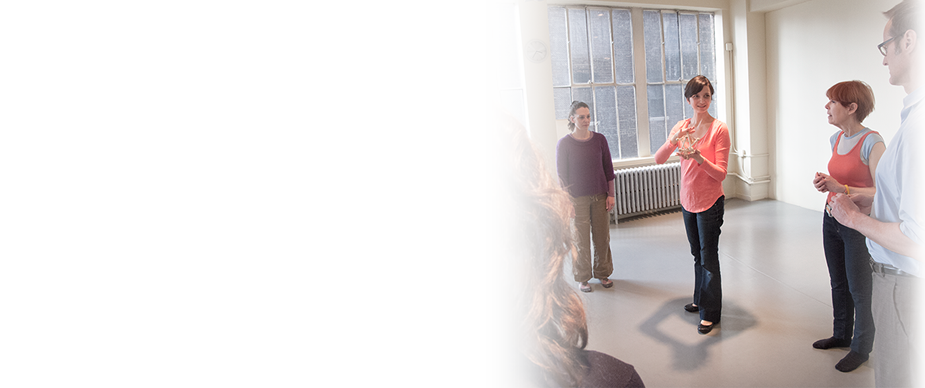2 Ways to Get on the Right Path to Good Posture
/Have you ever tried to learn a new skill or solve a problem and it didn't work, so you gave up?
I have.
One of my teachers in the theatre program I studied at in college told me that I was holding my shoulders up to my ears. She wanted me to change that, but she didn't tell me how, so I pulled them down and held them there. I did this religiously for several days. I was in so much pain that I was in tears, so I eventually gave up and stopped.
I knew what end result I wanted (shoulders down), but I didn't have any specific instructions, so all I could do was what I come up with myself (push them down and hold them there). I had no idea how long to expect it would take for my shoulders to stay down, so I gave up after three days.
There are many reasons why someone might have difficulty accompishing something and I'm not going to look at all of the reasons. Instead, here are two key considerations if you're struggling to learn or resolve something...
#1 Take a look at your approach - Maybe you need to do it differently. The phrase, "If at first you don't succeeed, try try again" needs some tweaking if you keep doing the same thing in the same way to no avail. If cold air doesn't make water boil, bring the pan inside and try applying heat. That's obvious, but what if the "how" isn't obvious...then it's time to seek out some guidance. The simpliest way to solve your problem may be something that you haven't thought of.
#2 Manage your expectations - If you were just starting to learn a language, how long would you expect it would take be able to carry on a basic conversation? How about a conversation in a loud restaurant? Thinking about how much time and persistence will be required can help avoid frustration. Time and persistence doesn't have to be boring or grueling. In fact, the journey can be just as satisfying as the result.
Many people come to me for help saying that their attempts to fix their posture aren't working, that they just get stiff and uncomfortable trying to hold themselves in a position. Often they expect that I'll show them the right position to hold and are suprised (and often relieved) when I don't.
You see, the problem isn't just the poor posture. The whole idea that the way to fix your posture is to hold your body in a position can lead you down the wrong path. If you're trying the "positioning" approach, you're like how I was with my shoulders.
If you truely have good posture, you can sit, stand, and move in a balanced way. I don't mean balanced like walking a tightrope. I mean balanced in a way that you stay upright, but feel relaxed, almost as if your body is supporting itself. Moving so that you stay upright and your hips and shoulders can move...not upright like a robot.
Improving your posture involves...
- Learning to make subtle adjustments that may be much more suble than what you're used to.
- Becoming more aware of your body while you're doing stuff, not just when you stop to practice.
- But at first, make time to stop and practice simple movements and body awareness exercises. (It doesn't have to be a ton of time. Sometimes you just lie on the floor. Consistency is the key for changing postural and movement patterns.)
- Having fun and recognizing that you're uncovering and changing habits that you may not have been aware of. You're opening up the door to new possibilities by noticing previously unconsious habits.
And by the way, I "fixed" my shoulders, but it took a much more subtle approach (The Alexander Techique) that felt really good and that I felt motivated to keep working on because of how much better I felt...and my shoulder problem wasn't even JUST about my shoulders.
A few years later I ran into someone who had been in the college class where my tense shoulders had been pointed out who immediately noticed and pointed out that my shoulders were no longer up to my ears.


